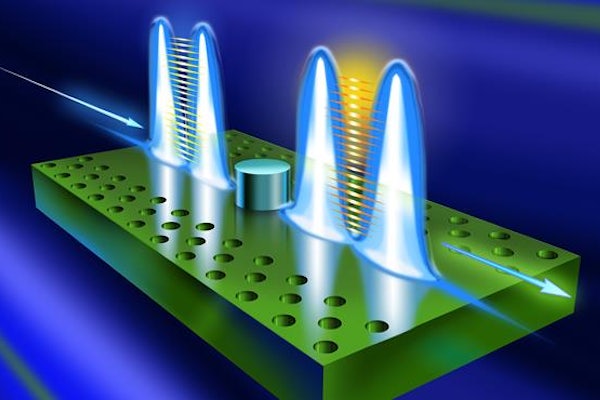Shen leads team seeking to improve quantum computation
J.T. Shen is leading a team developing a way to boost quantum information science and technology

Research aims to develop the elusive "two-photon controlled-phase logic gate"
Quantum technology is expected to play a decisive role in enhancing national security and bolstering further scientific discovery. A team of scientists, led by J.T. Shen at Washington University in St. Louis, is seeking to boost quantum information science and technology, particularly in the emerging areas of quantum computation and communication.
Shen, the Das Family Career Development Distinguished Associate Professor in the Preston M. Green Department of Electrical & Systems Engineering in the School of Engineering & Applied Science, has received a three-year, $1 million grant from the National Science Foundation, to develop a two-photon controlled-phase logic gate, an elementary building block of a full-fledged quantum photonic circuit for optical quantum information. To date, this type of photonic logic gate has been elusive because of the difficulty of working with photons.
Shen and two doctoral students in his lab, Zihao Chen and Yao Zhou, will develop the theory for the work, which lays the foundation for experiments performed by colleagues Pei-Cheng Ku associate professor, and Duncan Steel, the Robert J. Hiller Professor, both at the University of Michigan. The theory is based on Shen's previous work in which he found how to make photons interact with each other and bind together to become a quantum photonic dimer. Photons, or particles that represent a quantum of light, travel very quickly and don't carry a charge, so it is difficult to get them to interact with each other and manipulate them. Shen, however, overcame that difficulty.
"Several years ago, we figured out how to make photons know each other and form a quantum mechanical bound state," Shen said. "That capability provided the missing link for optical quantum computation, which is the enabling feature for a two-qubit photonic logic gate," Shen said.
While he has already made progress over the past five years, Shen said this work is still challenging.
"There are many obstacles for optical quantum computation, so we do not claim that the realization of this will bring a quantum computer immediately," Shen said. "In the end, people will need to make up to 1,000 of these logic gates and put them together in a quantum mechanical way. But now, we don't even have one. If we succeed, then we provide a fundamental two-qubit logic gate for photons. In principle, they provide a complete possibility for photonic quantum computation."
The work is part of $31 million awarded by the NSF for fundamental quantum research aimed at enabling the United States to lead a new quantum technology revolution.
"The quantum revolution is about expanding the definition of what's possible for the technology of tomorrow," said NSF Director France Córdova. "NSF-supported researchers are working to deepen our understanding of quantum mechanics and apply that knowledge to create world-changing applications. These new investments will position the U.S. to be a global leader in quantum research and development and help train the next generation of quantum researchers."




